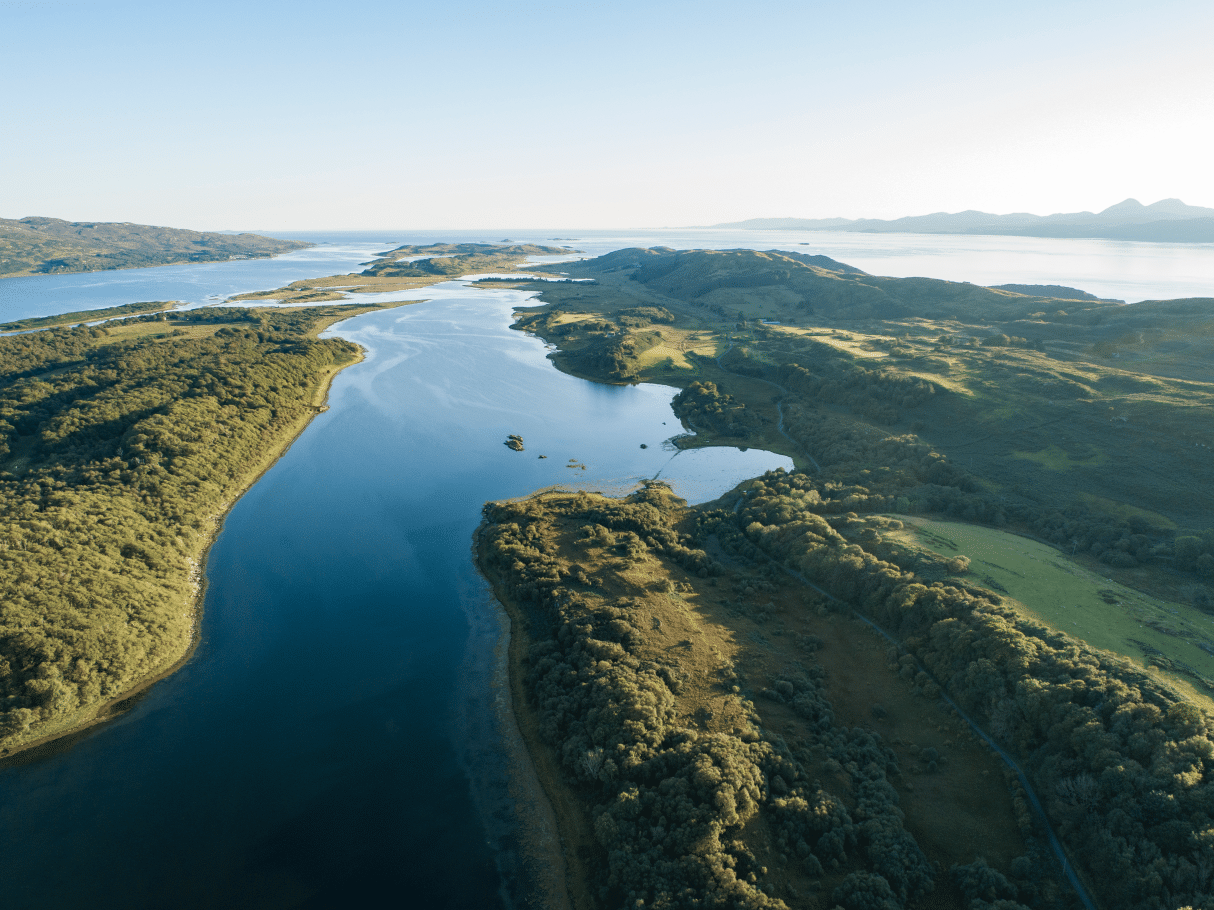Tayvallich, Argyll

Key Facts
- Highlands Rewilding operates three sites in Scotland as ‘outdoor natural capital laboratories’ for nature recovery and community prosperity, including Tayvallich (Taigh a' Bhealaich) in Argyll.
- Covering almost 1,400 hectares, Tayvallich provides opportunities for conservation and restoration of temperate rainforests, wetlands, species-rich grasslands and coastal ecosystems.
What is the project doing for Nature and Environment?
- Highlands Rewilding collects and analyses data for natural capital verification science across a wide variety of habitats and ecosystems to help establish the best methods for restoration.
- In Tayvallich, a combination of woodland restoration and regenerative agriculture is being used to increase levels of biodiversity and carbon storage, alongside a range of targeted interventions for aquatic and terrestrial species and habitats.
- You can read our latest research and about our land management approaches here.
How are communities engaged and benefiting?
- We have signed a landmark Memorandum of Understanding with the community body Tayvallich Initiative, established a local management board, and have sold land to the community and a local charity at cost.
- We provide new jobs, internships, apprenticeships and training opportunities across our sites, and have recently completed a ‘Joint Ventures for Scalable Community Benefits from Rewilding’ project to explore new ways to generate benefits from rewilding.
- Our approach to community empowerment in land management decision-making is set out in our Engagement Roadmap, and aims to increase communities’ involvement and benefits from nature restoration.
What is the business model employed to fund the project?
- We are a mass ownership company with over 800 investors, a majority of whom are ‘citizen rewilders’, and with no one shareholder owning more than 13% of shares at present.
- We have recently reduced the area of land we own to prioritise management agreements with other landowners that can support widespread uptake of restoration. To date have raised over £11 million in equity.
- We will be running further investment rounds aimed primarily at partnerships between private, public and philanthropic institutions, unlocking further private capital in the embryonic nature-recovery market.
Describe the partnerships formed and how they support project viability?
- Alongside key community stakeholders and our local management board at Tayvallich, we have partnered up with a group of local and UK-wide conservation organisations, ecologists and scientific specialists to develop our data collection and analysis, which will ultimately inform our intervention plans and recommendations for rewilding and natural capital uplift.
- These range from teams from Oxford University’s Leverhulme Centre for Nature Recovery and the University of Edinburgh, to other private companies involved in natural capital markets. By making results widely available we aim to improve general knowledge and practice around rewilding and community involvement.
What are the main challenges and risks to the project and how are they managed?
There are many challenges in working towards nature restoration and community prosperity. These include:
- The ongoing impact of climate change. We manage our land to increase the resilience of ecosystems against these impacts.
- The risk that insufficient investment limits the success of restoration in preventing climate and biodiversity meltdown. Our work aims to bring a higher level of trust into these markets through rigorous natural capital verification science.
- Demonstrating environmental and social benefits well enough to prompt widespread uptake of beneficial forms of management. We collaborate with researchers, publish our findings and share data as openly as possible.
Key Learning and Insights
- Robust natural-capital science is key to establishing a successful and investable nature recovery industry.
- It’s crucial to understand and transparently demonstrate the effects we have, and especially to show how restoration benefits people and the environment.
- Empowering communities and contributing to a just transition is a crucial goal, as well as one that itself contributes to environmental outcomes.
HIGHLANDS REWILDING
- Highlands Rewilding operates three sites in Scotland as ‘outdoor natural capital laboratories’ for nature recovery and community prosperity, including Tayvallich (Taigh a' Bhealaich) in Argyll.
